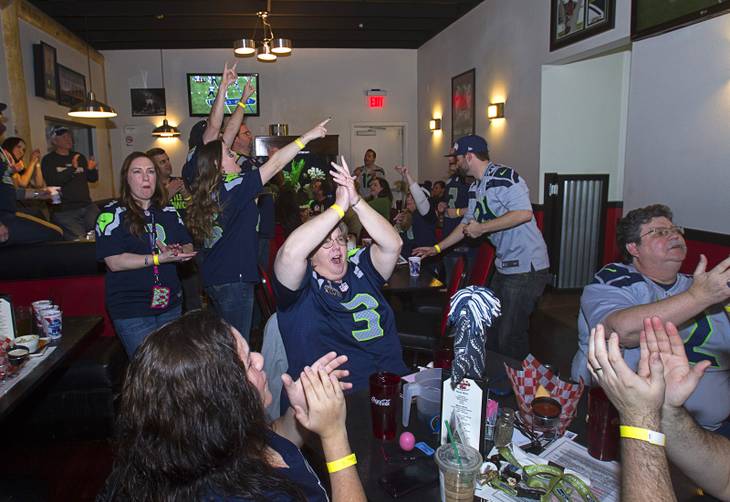Americans will illegally wager 38 times more money on this year’s Super Bowl than they will legally in Nevada, the only state with full-fledged sports betting, according to a projection from a casino industry trade group.
American Gaming Association President Geoff Freeman told a gathering of mayors in Washington, D.C., on Thursday that his organization expects the Super Bowl to elicit $3.8 billion in illegal wagers compared with Nevada’s legal $100 million. Freeman said the estimate on those illegal bets was a first for his organization, but his prepared remarks didn’t specify how they determined that number.
Chris Moyer, a spokesman for the gaming association, said on Friday that the number was calculated using a 1999 national study that included an estimate of the size of the illegal gambling market. The association looked at how the legal gambling market had grown since that time and modeled similar growth in the illegal market.
Nevada tracks how much is legally bet on the Super Bowl specifically, so the association used those numbers to arrive at its projection for illegal wagers on the game.
“Betting on the big game is a huge industry that keeps on growing. This first-ever estimate comes at a time when Americans’ attitudes toward regulated gaming continue to improve, and the AGA is closely examining the current state of sports betting, the laws that govern it and the best way forward for the gaming industry,” Freeman said in his prepared remarks. “We’d like to further explore this topic with each of you.”
Freeman’s comments follow concerns from the Treasury Department’s Financial Crimes Enforcement Network, or FinCEN, that criminals may be using sports books to launder money. In a letter addressed to Freeman from December, a FinCEN official wrote that increases in sports bets placed on behalf of another party are “facilitating criminal activity” and posing a risk of money laundering.
“It has also come to our attention that casinos may be under the impression that unless specifically directed to do so, a casino never has to ask a patron whether he or she is betting on his or her own behalf or on behalf of another party,” wrote Jamal El-Hindi, associate director in the policy division at FinCEN. “We are communicating directly with your organization to correct any such misperception.”
Freeman responded in a public statement that the “vast, unregulated, illegal sports betting market” contains a much greater risk of money laundering. He noted that casinos are vigilant about looking for illegal activity at their sports books and working with law enforcement to crack down. That kind of oversight, he said, simply doesn’t exist in the illegal market.
Adam Silver, the commissioner of the National Basketball Association, penned an op-ed for The New York Times in November arguing in favor of federal legislation that would allow all states to legalize sports betting. He wrote that illegal sports betting is a “thriving underground business that operates free from regulation or oversight.”
After the op-ed published, Freeman announced that the gaming association would work to identify the size and scope of the illegal gambling market, as well as federal and state solutions to combat it.
